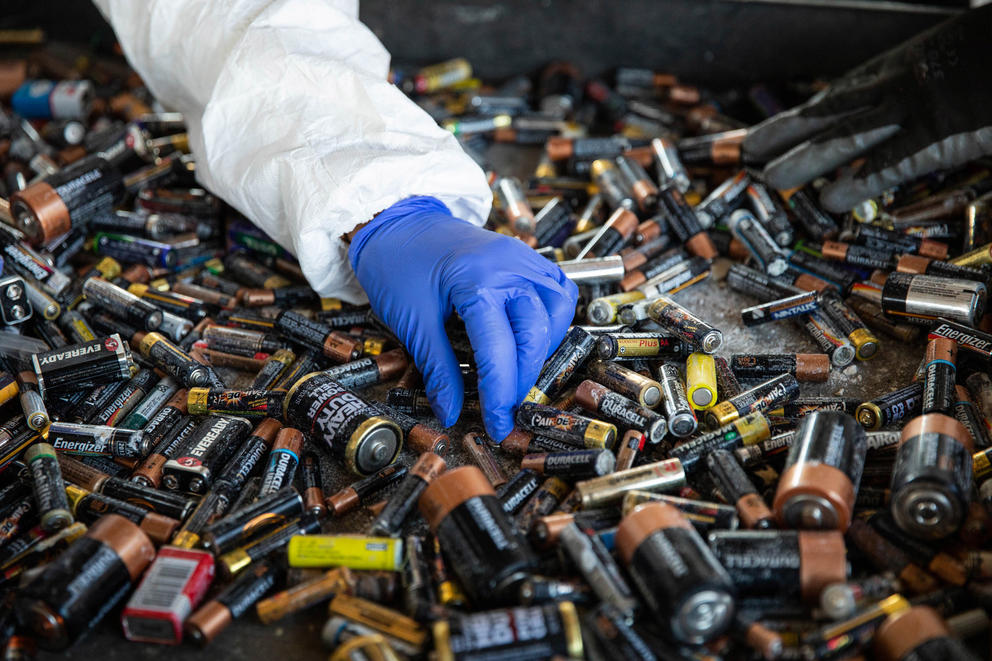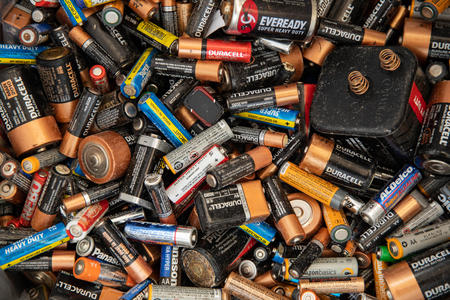Demand for and use of electric battery power is increasing with climate change and reliance on technology. Batteries are made of increasingly rare metals that generate pollution when we mine them. But they also create environmental and safety hazards, such as groundwater pollution and chemical fires, when disposed of incorrectly.
That reality is fostering tension in Washington, where recycling batteries is a complicated and often inconvenient process that puts the onus on consumers and local governments. With battery demand showing no signs of slowing, residents and their government representatives want to shift the cost of reducing environmental impact across the battery lifecycle onto the people who make batteries. It has been about a decade since legislators first attempted to pass a battery stewardship bill, but now SB 5144 is awaiting Inslee’s signature.
“We are thrilled that this bill has passed the Legislature. We're anticipating the governor will sign it and we do believe it is best-in-class,” says Zero Waste Washington’s Heather Trim, who says work toward battery stewardship really ramped up about four years ago. “We couldn't really wait that much longer [for it].”
The bill does many things. It creates targets for battery recycling efficiency, bans point-of-sale fees on battery-containing products, bans sending batteries to landfills and requires more accessible permanent disposal sites where rural and urban residents can drop off batteries.
“This bill will prevent fires, prevent the release of toxic chemicals into the landfill, and will establish a recycling program to capture a valuable resource that can be reused. Washingtonians will have consistent, easy access to recycling options leading to proper battery recycling that protects people and the environment,” says Ashley Evans, policy advisor for the Hazardous Waste Management Program in King County, which has been advocating for the statewide program.
Washington joins a small but growing contingent of states and municipalities requiring battery manufacturers to better steward their products, to different degrees. Vermont passed a law covering the stewardship of single-use batteries, while Washington, D.C., and California have laws covering both single-use and rechargeable batteries. New York has separate laws covering single-use and rechargeable batteries.
Centrally, the bill requires manufacturers, and sometimes companies selling battery-containing products like remote controls, to make recycling commitments if they want to sell batteries in Washington. A business would sign on to a state stewardship plan and work with a manufacturer-funded battery stewardship organization that creates and manages the infrastructure to collect and recycle batteries.
“By requiring producers to be responsible, we will encourage them to design longer-lasting batteries and move us one step closer to a circular economy,” said bill sponsor Sen. Derek Stanford, D-Bothell, in a March 7 press release.
Many manufacturers operating in Washington have already voluntarily joined the stewardship organization Call2Recycle, which has more than 800 voluntary, free collection sites in the state operated out of businesses like Home Depot and Staples. Call2Recycle collected and recycled almost 1.18 million pounds total of single-use and rechargeable batteries in Washington from roughly 2018 through 2022.
The bill also asks battery stewardship organizations such as Call2Recycle to submit plans outlining how they would do their work. CEO Leo Raudys confirmed to Crosscut that the organization intends to submit a plan.
Batteries need to be disposed of differently based on their chemistry, and this can be a headache for the average consumer to figure out when so many rechargeable and single-use batteries look similar. But Washington’s new law will standardize battery collection: Consumers will be able to dispose of all portable batteries in the same way, leaving a manufacturer-funded stewardship organization to do the sorting.
It has been legal but discouraged in King County for people to toss alkaline batteries into the garbage.
The law also directs the Department of Ecology to figure out a preliminary policy for recycling electric vehicle batteries by the end of November.
While Trim is excited about the law, she hopes to see a dedicated electric vehicle recycling bill in 2023. “If we’re going to go to EV battery cars only in Washington, we need to be sure we have the batteries to go with that,” she says.
Four other statewide stewardship programs recycle hazardous products in Washington. The Department of Ecology oversees stewardship of e-waste (broken and worn electronics like TVs and DVD players), paint and mercury lights. A solar panel program will likely launch in mid-2025.
The stewardship program is slated to begin January 1, 2027, with full implementation by 2030.




